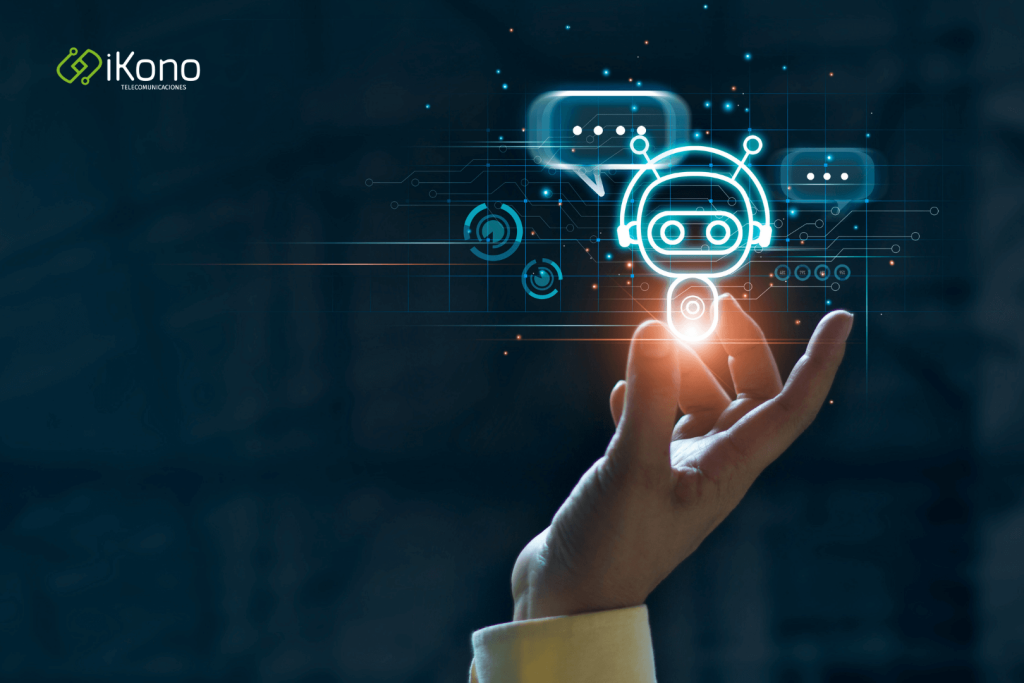Bots will dominate communications
![]()
Gone are the days when the only way to communicate with family and friends was through letters and the telephone. Gone are the days when accessing any service from a public or private entity required in-person attendance, filling out thousands of forms, or waiting in long lines.
Nowadays, in some cases, it's not even necessary for a person to be on the other end of the line to solve a problem; all it takes is programmed artificial intelligence to guide us through the entire process and provide a solution, available 24 hours a day, 7 days a week, without us even realizing that the entire conversation we had was with a robot.
The past
The technological leap in communications in recent decades has been so great that today, most people have a device with internet access, on which they have at least one instant communication app installed. Through this app, they can communicate not only by voice, but also by chatting, sharing photos, videos, links, sending documents, and many other functions that weren't possible a couple of decades ago. It was also impossible to imagine that artificial intelligence could replace a real person in a conversation.

This utopia is well-founded, given the complexity of understanding communication between human beings, where not only words and sentences converge, but also emotions, intentions, ideas, and imaginations.
Equipping this is not an easy task, and although it is not a new idea, it continues to regenerate and become increasingly popular. For example: “The first
A program that simulated a conversation was ELIZA, created by MIT professor Joseph Weizenbaum in the 1960s. ELIZA operated by recognizing keywords or phrases to reproduce a response, using those keywords from programmed responses to create the illusion of interaction.”.
However, it was a mechanized process, which has been refined and become increasingly intuitive, thus enabling a technological singularity in society.
The present
Thinking about bots with artificial intelligence similar to that of human beings seems like a science fiction topic, with reference to films like Terminator, Blade Runner, and The Matrix, where we see how machines surpass their creators to the point of rebelling and taking control.
Although this fortunately falls exclusively within the realm of cinema, artificial intelligence is now present in more than one of our daily activities.
Artificial intelligence is present in multiple everyday tasks, the most immediate example is your smartphone, which has multiple functions such as: voice assistants that help you with your web searches or access other applications through a voice command, another type of bot helps you improve your photos automatically, while another analyzes your internet searches to offer you a more personalized experience.
There are others that guide us along the best route to avoid traffic, and others that automatically respond when we contact a business to request a product or service. They show us the catalog, guide us to the best option, automatically guide us through the purchasing process, and, if necessary, transfer us to a specialized agent to handle our requests. What a few years ago might have been considered science fiction is now a reality.
The future
Taiwanese computer scientist Kai-fu-lee, developer of a continuous, speaker-independent speech recognition system, predicts that: "By 2041, advances in artificial intelligence will allow, for example, increased precision in medicine, to the point where doctors will dedicate themselves to validating diagnoses made by software." He also explains that: "Innovation in robots will allow mundane household tasks, including cleaning and other chores, to cease being human problems.".
He also states that: "By 2035, companies that incorporate artificial intelligence into their business model will see a profit increase of around 38%." In the future, knowing about bots and how to use them can help create a more personalized and enjoyable user experience.
Today, it can be considered one of the most effective marketing strategies, and it also helps optimize operations to provide better customer service.
The development of artificial intelligence (bots) to facilitate human interactions is constantly evolving, and without a doubt, these kinds of improvements are making these technologies increasingly intelligent, to the point that in the future they will not only dominate communications, but all areas of daily routine, making our lives easier.
#We invite you to read our blog post «Patience and listening skills are key to being a good agent.»
Learn about our Corporate Solutions
Learn about the IP telephony, multi-agent chat, and mass text and voice messaging solutions for your business.





2 Responses